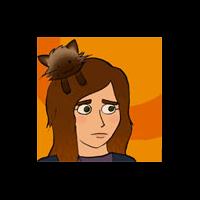Съобщения: 22
Език: English
Alkanadi (Покажи профила) 18 май 2016, 06:29:04
erinja:You'd need to accompany it with a noun for it to make sense at all.So we can't say Beleta without a noun, yet we can say Bonega without a noun?
Alkanadi (Покажи профила) 18 май 2016, 06:34:05
vejktoro:Especially if the idiom hasn't quite made it to mainstream in the native tongueI think this idiom is commonly used. At least, in Canada, I hear it a lot. Maybe, outside of north american it isn't too common.
Miland (Покажи профила) 18 май 2016, 07:42:36
Abeneezer (Покажи профила) 18 май 2016, 08:42:13
Alkanadi:Correlatives with '-a' works like adjectives and modifies nouns. They can also stand alone at times, but they cannot work as adverbs that affects the meaning of only adjectives. How does 'Kia bonega' make sense to you? It needs a noun to follow or precede 'bonega'erinja:You'd need to accompany it with a noun for it to make sense at all.So we can't say Beleta without a noun, yet we can say Bonega without a noun?
Vestitor (Покажи профила) 18 май 2016, 09:41:24
When you're speaking English, use English and the peculiarities that have developed in that language. Ditto if you're speaking German, French, Spanish or Czech. Esperanto isn't a half-way house container language for rendering 'versions' of foreign-language idioms and popular expressions.
Ni parolu Esperanton!
Alkanadi (Покажи профила) 18 май 2016, 09:47:52
Vestitor:Isn't the problem (if there is one) that folk are perpetually trying to use Esperanto as a language in translation rather than converting ideas/intentions directly into existing Esperanto?Yah. I think so. Often I think of what I want to say in English and then convert it into Esperanto. I am trying to think more in Esperanto rather than translate in my head, but it takes time.
devilyoudont (Покажи профила) 19 май 2016, 23:30:47
Alkanadi:I think the issue is using "Kia beleta" I feel like I would see this in the context of a phrase like, "KIA BELETA KATO" or something meaning like "What a pretty cat!"erinja:You'd need to accompany it with a noun for it to make sense at all.So we can't say Beleta without a noun, yet we can say Bonega without a noun?
I typically don't see a-words without nouns... standing on it's own I would typically see "Bonege!" or "Cxarme!" (or Belete? I don't see this word much). I take this as being short for "Estas (adverb)" which would be a complete sentence. Hope this helps
Talisman (Покажи профила) 20 май 2016, 13:31:07
Zvoc47 (Покажи профила) 21 май 2016, 20:57:24
P.S. I chose Esperanto instead of a conlang because it would take too long to make and people wouldn't understand it, but with Esperanto, it's a language that's alive and means something in terms of feelings and dynamics.
Vestitor (Покажи профила) 21 май 2016, 21:33:23
Zvoc47:Why stop being cute? I'm writing a video game's story and it needs to have cute elements.Honestly I don't even really know what this means. "Cute elements"? What would these be exactly?



